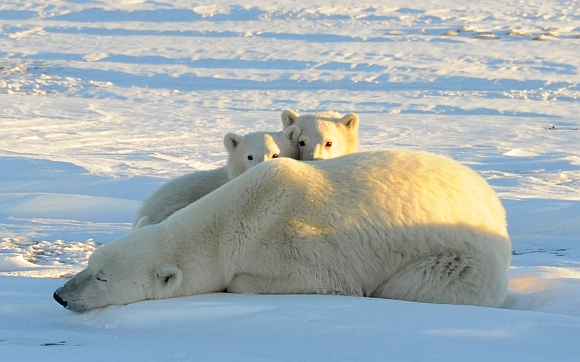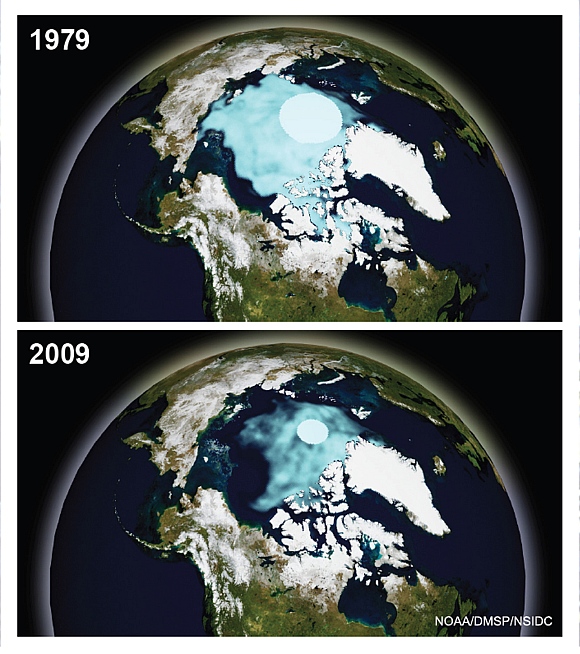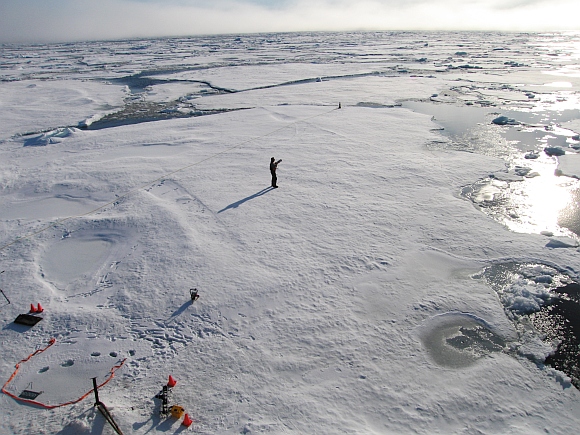
In an alarming sign, scientists have warned that Arctic sea ice is dramatically melting at a faster rate than previously thought, which may accelerate the effects of global warming.
Preliminary results from the European Space Agency's CryoSat-2 probe indicate that 900 cubic kilometres of summer sea ice has disappeared from the Arctic Ocean over the past year.
Sea ice in the Arctic is disappearing at a far greater rate than previously expected, according to data from the first purpose-built satellite launched to study the thickness of the Earth's polar caps, the 'Guardian' reported.
...

This rate of loss is 50 per cent higher than most scenarios outlined by polar scientists and suggests that global warming, triggered by rising greenhouse gas emissions, is beginning to have a major impact on the region.
In a few years the Arctic Ocean could be free of ice in summer, triggering a 'gold rush' to exploit its fish stocks, oil, minerals and sea routes. The new measurements indicate that this ice has been thinning dramatically at the same time.
For instance, in regions north of Canada and Greenland, where ice thickness regularly stayed at around five to six metres in summer a decade ago, levels have dropped to one to three metres.
...

"Preliminary analysis of our data indicates that the rate of loss of sea ice volume in summer in the Arctic may be far larger than we had previously suspected," said Dr Seymour Laxon, of the Centre for Polar Observation and Modelling at University College London.
"Very soon we may experience the iconic moment when, one day in the summer, we look at satellite images and see no sea ice coverage in the Arctic, just open water," Laxon said.
...

The consequences of losing the Arctic's ice coverage, even for only part of the year, could be profound. Ocean temperatures will rise and methane deposits on the ocean floor could melt, evaporate and bubble into the atmosphere.
Methane is a particularly powerful greenhouse gas and rising levels of it in the atmosphere are only likely to accelerate global warming. With the disappearance of sea ice around the shores of Greenland, its glaciers could melt faster and raise sea levels even more rapidly than at present.
...